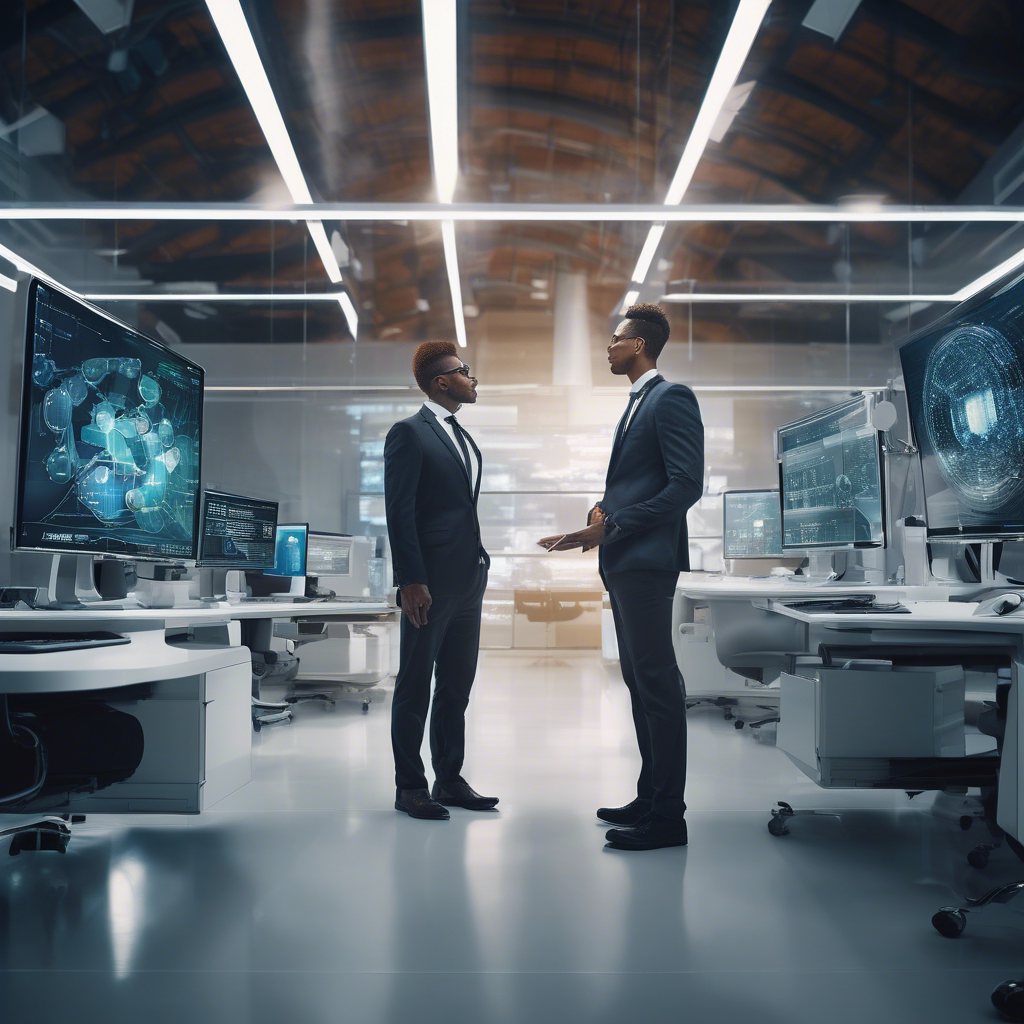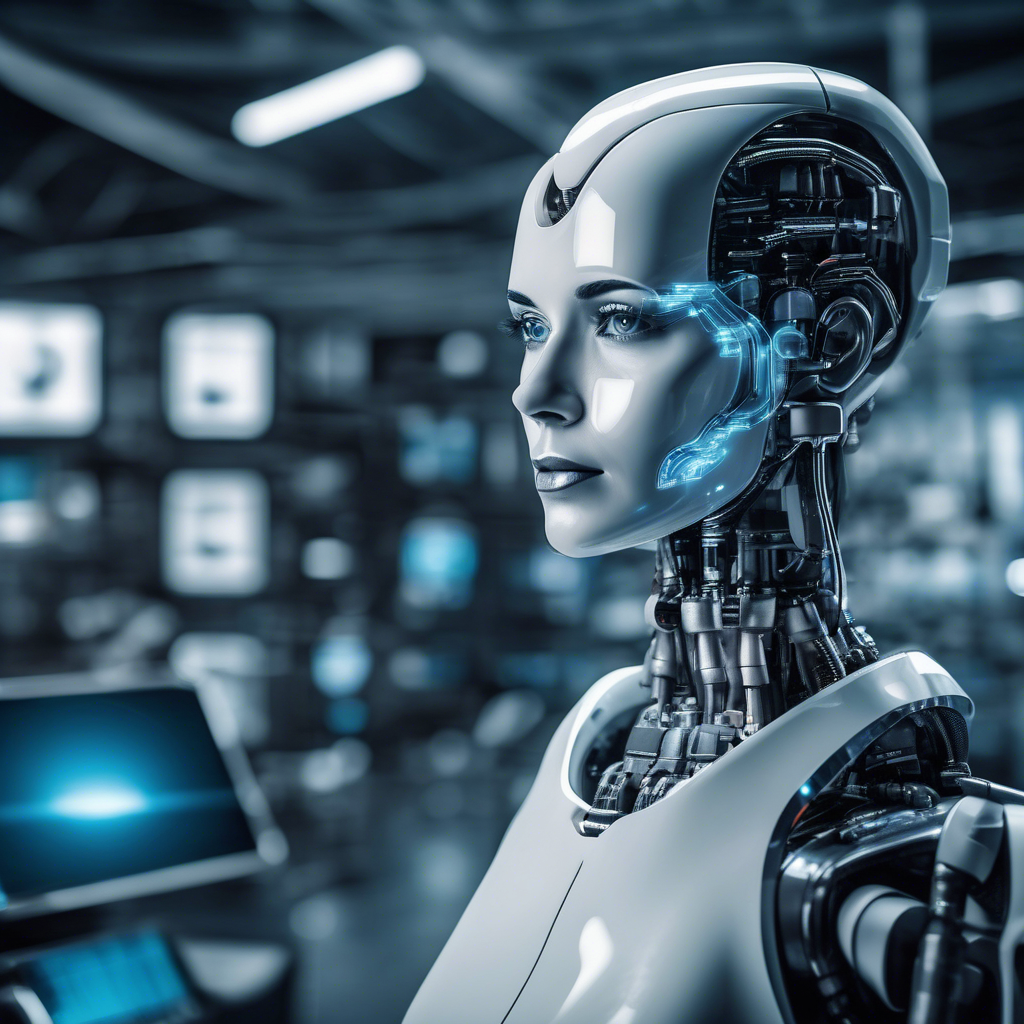How AI-Powered Automation is Transforming Businesses in 2025
In 2025, AI-powered automation isn’t just a buzzword—it’s the silent revolution reshaping businesses at their very core. Ever wondered how your favorite coffee shop manages to whip up your customized latte in the blink of an eye during the morning rush? Spoiler alert: it’s not just skilled baristas but also the deft hand of AI. Picture this—AI algorithms predicting inventory needs, automating supply orders, and even suggesting personalized promotions based on your buying habits. It’s like having a crystal ball with extra caffeine.

But let’s not get carried away just yet. Though it sounds like something out of a sci-fi novel, AI technologies changing the business landscape is as real as the smartphone in your pocket. As we delve deeper into 2025, AI-powered automation isn’t just transforming operations but redefining what it means to run a business. From chatbots that never sleep to data analytics that could put Sherlock Holmes to shame, AI technology in 2025 is the silent partner every entrepreneur needs. So, buckle up as we embark on a journey through the digital transformation AI offers, exploring how businesses are embracing this uncharted territory.
The Role of AI in Streamlining Operations
Enhanced Efficiency Through AI
For starters, AI’s prowess in streamlining operations is nothing short of a game-changer. Imagine you’re at the helm of a logistics company where timely deliveries are the bread and butter. Enter AI, which optimizes routes using real-time data, considers traffic conditions, and even weather patterns. This future of automation ensures deliveries arrive on time, every time, without breaking a sweat. It’s like having a GPS with a sixth sense.
Moreover, AI-powered automation in business isn’t just about speed; it’s about precision. Take manufacturing, for instance. AI algorithms can predict machinery maintenance needs before they break down, minimizing downtime and maximizing output. It’s a proactive approach that’s saving businesses heaps of money and headaches. A stitch in time really does save nine, or in this case, millions in repair costs.
Data Management and Analysis
Data is the new oil, or so they say. And in 2025, AI’s ability to manage and analyze data is unmatched. Picture sorting through mountains of consumer data to find actionable insights—sounds daunting, right? With AI, this process is not only possible but streamlined. Algorithms sift through data faster than you can say “big data,” identifying trends, consumer behavior, and even predicting future demands.
Consider the retail industry. AI technologies changing the business landscape allow companies to personalize customer experiences like never before. From recommending products based on past purchases to predicting what’s next on a consumer’s wish list, AI is the secret ingredient behind those “just for you” ads. It’s like having a personal shopper who knows you better than you know yourself.
Revolutionizing Customer Experiences
Personalization at Scale
So, how’s AI transforming customer interactions? Well, personalization is where the magic happens. When you visit an online store, ever noticed how the recommendations seem eerily accurate? That’s AI in action, analyzing your browsing history, previous purchases, and even time spent on certain product pages. It crafts a shopping experience tailored just for you, like a bespoke suit.
In the hospitality sector, AI-powered automation is revolutionizing how guests are treated. Imagine checking into a hotel where everything is set to your preference—room temperature, preferred drinks in the minibar, and even your wake-up call time. It’s like your home away from home, minus the laundry list of chores. This level of personalization not only enhances guest satisfaction but also cultivates brand loyalty.
24/7 Customer Support
Ever dealt with a customer service issue at 3 a.m.? Traditional models would have you waiting till morning, but not in 2025. With AI, businesses offer 24/7 support through chatbots that understand and respond to queries in real-time. These bots are no longer the clunky, frustrating scripts of the past; they’re sophisticated conversationalists providing solutions faster than you can dial a number.
Think of it this way: AI in business is like having an employee who never sleeps, taking care of customer needs around the clock. It reduces wait times, improves satisfaction, and frees up human agents to tackle more complex issues. It’s a win-win, creating a seamless experience for both companies and customers alike.
Driving Innovation and Growth
AI as a Catalyst for Innovation
AI isn’t just helping businesses run smoother; it’s sparking innovation. Companies now leverage AI to develop new products and services that were once the realm of imagination. Take, for instance, AI in the pharmaceutical industry, where it’s accelerating drug discovery processes, cutting years off the development timeline. Suddenly, lifesaving treatments reach patients faster, potentially saving countless lives.
Moreover, AI fosters creativity by taking over mundane tasks, allowing humans to focus on innovation. Designers, for instance, can use AI to rapidly prototype and refine ideas, leaving them room to dream big. It’s like having a personal assistant who handles the grunt work, giving you space to think outside the box.
Building Competitive Advantage
In 2025, AI isn’t just a tool; it’s a competitive edge. Businesses adopting AI technologies are outpacing competitors, offering better services, and enhancing operational efficiencies. In the financial sector, for example, AI algorithms detect fraudulent activities in real-time, safeguarding assets and maintaining trust. It’s like having a digital watchdog, always alert and ready to pounce.
Furthermore, AI helps companies anticipate market trends, allowing them to pivot strategies proactively. This future of AI in business automation ensures they stay ahead of the curve, adapting to changes faster than the competition. In a world where agility is paramount, AI is the secret sauce to staying relevant and thriving.
FAQ Section
How is AI impacting the job market in 2025?
AI is undoubtedly transforming the job market, but not in the doomsday way some might fear. While AI-powered automation does replace certain repetitive tasks, it also creates new opportunities in tech development, AI management, and creative roles. Imagine AI as a new co-worker, taking over mundane tasks so humans can focus on more fulfilling work.
What industries benefit most from AI technologies?
Virtually every industry can benefit from AI, but some stand out more than others. The healthcare sector, for instance, uses AI for diagnostics and personalized medicine, while retail relies on AI for personalized shopping experiences and inventory management. Even agriculture isn’t left behind, with AI optimizing crop yields and resource use.
Are small businesses able to leverage AI effectively?
Absolutely! In 2025, AI technologies are more accessible than ever, even for small businesses. Cloud-based AI solutions offer scalable options, meaning small companies can integrate AI without the massive costs once associated with it. From automating social media management to enhancing customer service, small businesses have plenty to gain.
Is AI reliable for making business decisions?
AI is highly reliable for data-driven decisions, as it eliminates human biases and processes vast amounts of information swiftly. However, human oversight remains crucial. AI provides the insights, but it’s up to human judgment to interpret and implement these insights effectively, ensuring decisions align with broader business goals.
What are the ethical considerations of using AI in businesses?
Ethical considerations include data privacy, bias in AI algorithms, and the transparency of AI decision-making processes. Businesses must ensure that AI doesn’t perpetuate inequalities or violate user privacy. Developing a framework for ethical AI use is crucial to address these concerns and maintain public trust.
Conclusion
So, there you have it. AI-powered automation in 2025 is transforming businesses in ways we once could only dream about. From streamlining operations to redefining customer experiences, AI’s impact on businesses is profound and far-reaching. It’s not merely about technology; it’s about reimagining the very fabric of business operations.
As we ride this wave of digital transformation AI offers, businesses need to embrace these changes with open arms, ready to adapt and innovate. For those willing to invest in AI technology in 2025, the potential rewards are vast. So, what’s next for your business? Maybe it’s time to take that leap into AI-powered automation and see where it leads. After all, the future waits for no one.







